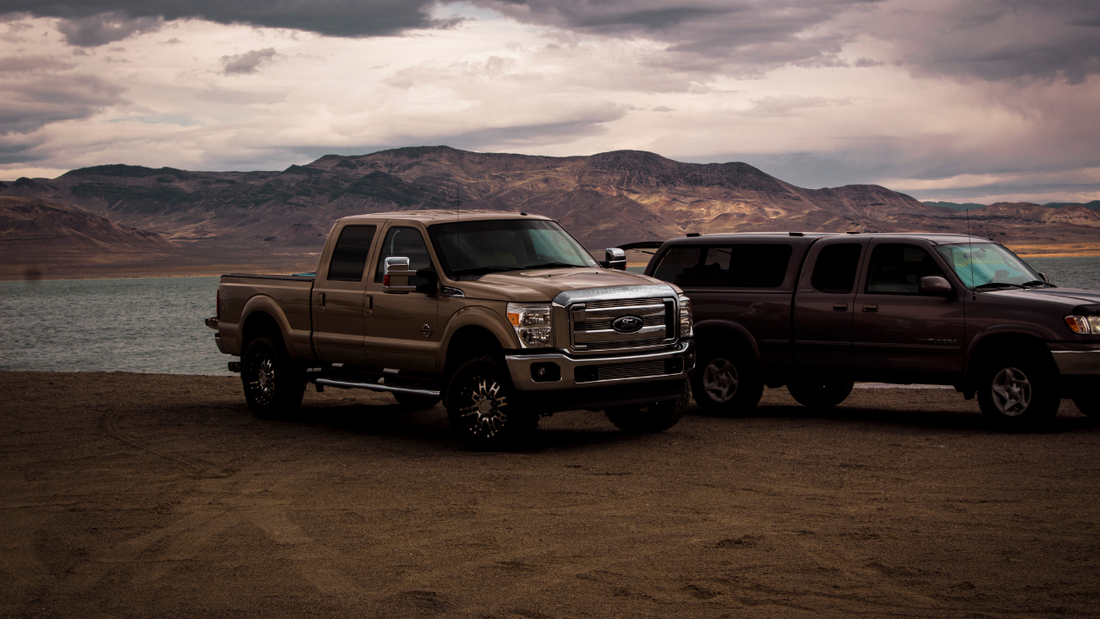
Thinking About Buying a Pickup Truck? Here’s the Real-World Tradeoff
A pickup truck might be on your wishlist for a lot of reasons: they look great, feel powerful on the road, and give you that added versatility to haul materials for home projects or toss gear in the back for a weekend trip.
But before you sign for that shiny new truck, let’s have an honest conversation about the tradeoffs—financial, practical, and even insurable.
A pickup truck might be on your wishlist for a lot of reasons: they look great, feel powerful on the road, and give you that added versatility to haul materials for home projects or toss gear in the back for a weekend trip.
But before you sign for that shiny new truck, let’s have an honest conversation about the tradeoffs—financial, practical, and even insurable.
Who Is This For?
You’re not hauling trailers. You’re not towing daily. You’re not a contractor. You’re a commuter, a homeowner, maybe even a weekend DIYer. You want a truck because you’ve always liked the idea of having one—and sometimes, that’s reason enough.
But before you jump in, let’s walk through the downsides of owning a truck from both a consumer and insurance perspective.
They’re Expensive—in Every Category
Let’s start with the obvious: trucks cost more.
- Higher base price
- Higher fuel consumption (especially in stop-and-go traffic)
- Bigger, more expensive tires
- More expensive oil changes
- Accessories aren’t cheap either
Add it all up, and even if you’re not using the bed for work, you’re still paying for the utility.
Insurance angle:
Your premiums will likely be higher, too. Why?
- Trucks take longer to stop = higher risk of rear-end collisions
- More weight = more damage if there’s an accident
- Higher replacement costs = higher claim payouts
If you're in California, be sure to compare California truck insurance options, especially if you're insuring a new or lifted model. Rates can vary widely depending on usage, modifications, and how you bundle with other policies.
They’re Expensive—in Every Category
Let’s start with the obvious: trucks cost more.
- Higher base price
- Higher fuel consumption (especially in stop-and-go traffic)
- Bigger, more expensive tires
- More expensive oil changes
- Accessories aren’t cheap either
Add it all up, and even if you’re not using the bed for work, you’re still paying for the utility.
Insurance angle:
Your premiums will likely be higher, too. Why?
- Trucks take longer to stop = higher risk of rear-end collisions
- More weight = more damage if there’s an accident
- Higher replacement costs = higher claim payouts
Parking Is a Pain
Unless you live in a rural or suburban area, urban driving and parking is a challenge in a full-size pickup. Think:
- Underground garages with low clearance
- Compact parking spots
- Tight city ramps where you have to reverse into everything
- Getting out of your truck when there’s 6 inches between you and the next car
You Might Not Actually Use the Bed That Often
Sure, you’re handy. You make the occasional run to Home Depot. But how often are you actually filling the bed with lumber, soil, or appliances?
If it’s only a few times a year, renting a truck on those days may be far more economical.
Even if you think, “I’ll use it more once I have it,” the reality for most truck owners is that beds stay empty 90% of the time.
Mileage Is… Not Great
Physics doesn’t lie. Trucks are heavier and less aerodynamic. Even the “efficient” models still sip fuel more aggressively than sedans, crossovers, or small SUVs.
Insurance note:
Vehicles with poor fuel economy may also have higher long-term cost-of-ownership calculations, which some insurance carriers account for when pricing policies.
Repairs & Maintenance Are Mixed
One upside many truck owners bring up is that trucks tend to be easier to repair than some modern cars with complex CVTs or hybrid systems. That said, maintenance still costs more because:
- Bigger parts cost more (brakes, tires, etc.)
- Shops often charge more for larger vehicles
- Trucks may require synthetic oils or special servicing
You’ll also find yourself spending more at the car wash, for waxes, and for accessories—all because it’s “a truck.”
Licensing & Fees May Be Higher
In some states, licensing fees are based on gross vehicle weight. Heavier trucks (especially 2500/3500 series) can cost significantly more to register each year.
Some cities also calculate personal property tax based on vehicle value—so if your truck holds its value well, you might pay more than you expect.
Insurance: Let’s Talk Policy Realities
Here’s where we come in as an insurance agency:
If you’re shopping for quotes for home insurance, and now you’re adding a truck into the mix—your auto insurance policy is going to change.
Here’s what to expect:
- Higher liability premiums due to weight and stopping distance
- Increased comprehensive/collision costs due to higher replacement value
- Potential discounts if you bundle it with your homeowners insurance—but not always enough to offset the increase
Some trucks (especially luxury or lifted models) even require custom coverage for aftermarket parts.
Safety Isn’t Always What You Think
Trucks sit higher and feel powerful—but they also come with:
- Longer braking distances
- Higher rollover risk (especially lifted models)
- More blind spots
Even with modern safety tech, you can’t out-engineer physics. A midsize SUV may keep you safer in a panic stop or snowy turn than a rear-wheel-drive pickup.
Should You Get the Truck?
If you’ve always wanted one, that matters. Sometimes want > need, and we totally get that.
But don’t buy it just because it looks good or “might” come in handy.
Run the numbers. Look at real-world use. Get a few home insurance quotes and see how adding a truck affects your auto premium.
And know this—if you’re on the fence, there are amazing SUVs that offer:
- Great cargo space
- Towing capability
- Comfort and fuel efficiency
- Lower cost to insure and maintain
We’re not anti-truck. We’re just pro-decision-making.
